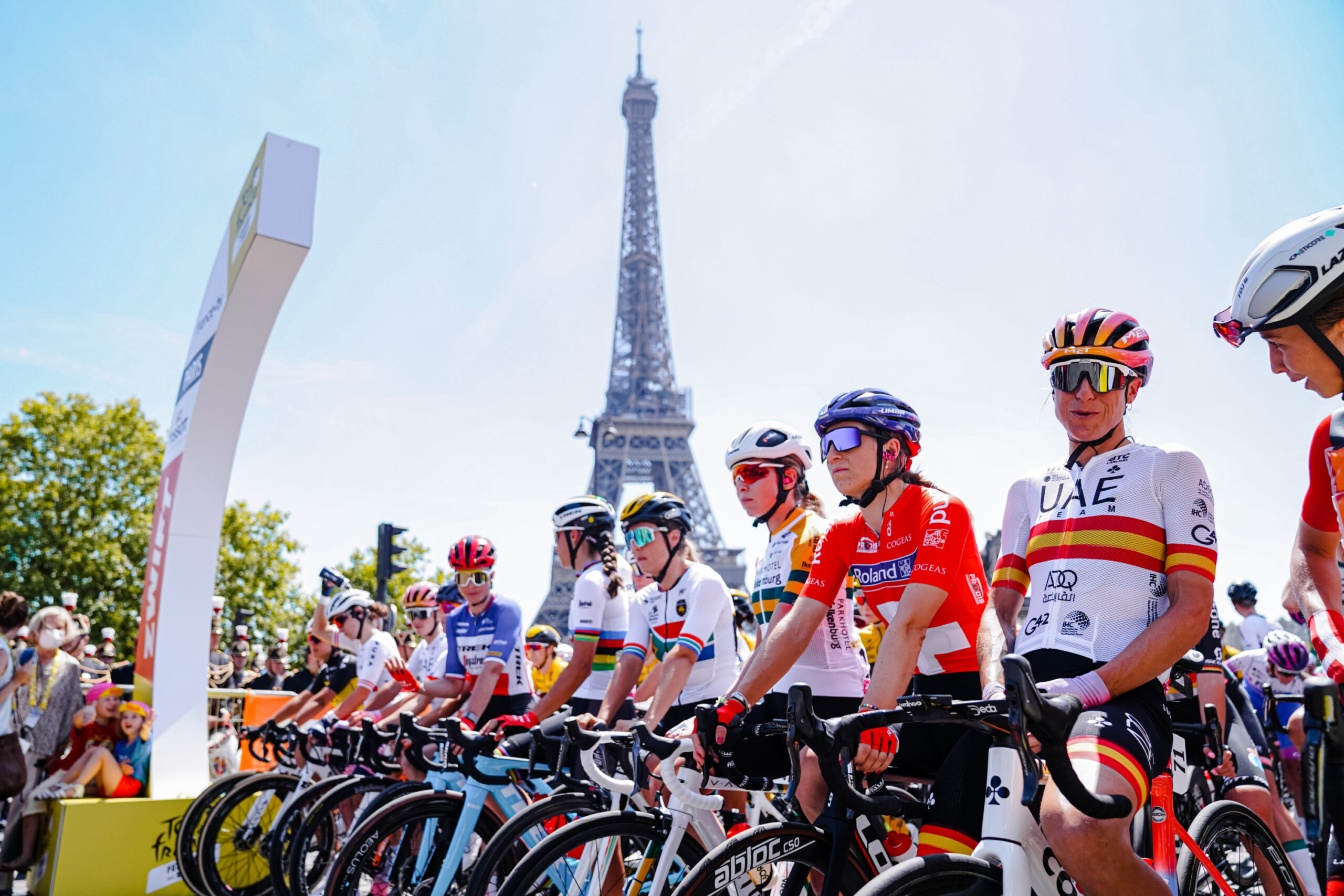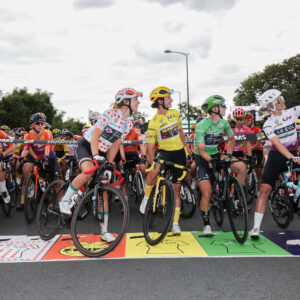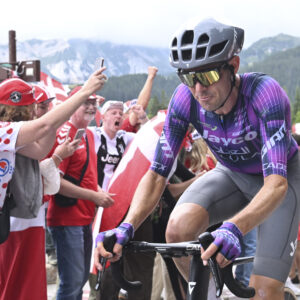Just days out from the Tour de France Femmes (TdFF) avec* Zwift, the title sponsor Zwift has released a report outlining the impact of the race since its revival.
It’s hard to believe that the TdFF is only in its fourth year. In such a short period of time, it has gone from nothing to one of the main races on the women’s professional calendar, and many other things for the women’s peloton have been elevated over the same time period.
Kate Veronneau, Director of Women’s Cycling at Zwift, said, “Women’s sport around the world is being lifted by a tailwind of interest and investment, and yet, until 2022, women’s professional cycling missed the crown jewel of the cycling calendar, the Tour de France. To have such an iconic race as part of the Women’s WorldTour was pivotal to ensure that women’s cycling also benefited, to have other brands, partners and sponsors invested in growing the sport, on the biggest stage under the banner of the most famous race in the world.”

With the fourth TdFF approaching, Zwift commissioned a survey of 5,030 people in four countries – USA, UK, France and Germany, to delve deeper into the impact the TdFF is having on the state of women’s cycling.
When speaking with Zwift for its 2023 report, Measuring The Impact of The Tour de France Femmes avec Zwift, Ruby Roseman-Gannon, now a professional cyclist for Liv AlUla Jayco, said, “The Tour de France Femmes avec Zwift means my five-year-old self who watched men but not women race the biggest races in the world can realise her dreams. I never thought cycling would be my profession, so I studied for five years at uni to support my cycling career, but now it’s a reality.” Roseman-Gannon will line up on Saturday to ride her third TdFF.
Up and coming Dutch rider Puck Pieterse of Fenix-Deceuninck notes the impact that increased budgets are having on the professionalisation of the peloton – “Although I haven’t been riding in the professional peloton for long, it’s clear that the landscape has changed significantly in just the past few years.
“One of the biggest differences I’ve noticed is how much more organised the peloton has become. Sprint finishes now feature highly structured lead-outs and dedicated sprint trains. Teams are working tactically, positioning their sprinters with incredible precision.
“Another notable shift is the depth of talent across the board. Five or six years ago, there were a few dominant riders winning most of the races. Now, the top level is broader and more competitive. You see a range of specialists: pure climbers, explosive punchers, dedicated sprinters and more riders capable of contending for victory on challenging finishes. The rising competitiveness has transformed the racing experience. There are just more riders who can win now. The level is so high, and the field is deeper than ever. It makes the races more exciting and less predictable.”

Some of the accomplishments noted by Zwift of the TdFF to date include:
- The inaugural Tour de France Femmes avec Zwift sparked the biggest social media growth for riders and teams in 2022.
- Top 35 female riders saw their Instagram and Facebook followers grow by 8.6% during the race.
- The Tour’s official social media audience grew to 2.6 million fans in 2024, up 700,000 from the year before.
- Video views jumped 61% in 2024 to reach 120 million.
- Social impressions hit 357 million in 2024 – a 257% increase from 2023.
We can’t wait to see the continued growth of women’s professional cycling in the coming years.
And while there is much kudos to Zwift for relaunching the race, we also need to acknowledge many others who lobbied for its return. In 2013, professional cyclists Kathryn Bertine, Marianne Vos (who will race for the fourth time in this year’s TdFF), Emma Pooley, and professional triathlete Chrissie Wellington formed an activist group called Le Tour Entier the whole tour) to petition ASO to launch a women’s Tour de France. In response, the ASO launched La Course by Tour de France in 2014, which was more like a women’s cycling demonstration event than a stage race. We now have a nine-stage women’s Tour thanks to these women and many others.
Learn more and download the full report here.
* If, like me, you studied French at school, you’ll probably remember that the word ‘avec’ means ‘with’ in English. If you didn’t, you’ve most likely been wondering why it had such a strange name.
Nicola Rutzou – a long-time contributor and, most recently, the editor of Bicycling Australia. Nicola is a keen Sydney-based road cyclist who writes reviews, news, and destination pieces.


